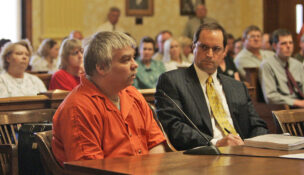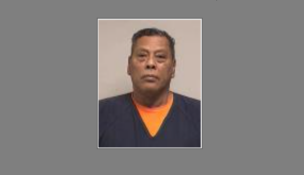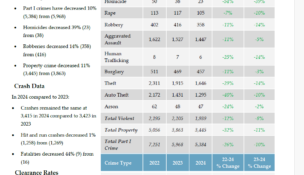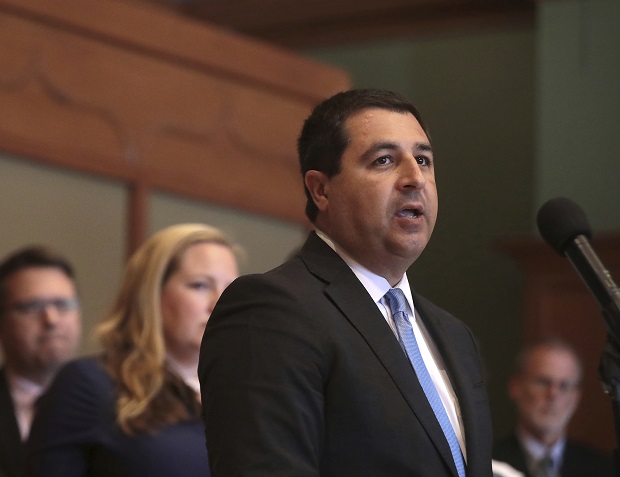South Dakota fought off attack on judiciary
By: dmc-admin//May 19, 2008//
When the judiciary comes under attack, it is important to convince the business community that they have the strongest interest in a stable court system.
That was the lesson that Thomas Barnett, executive director of the State Bar of South Dakota, conveyed to the Wisconsin State Bar at its annual convention on May 9.
Although the judiciary has been under threat in this country at least since the case of Marbury v. Madison, the worst it has gotten in Wisconsin is scurrilous demands for judges and justices to recuse themselves, even in cases in which they have no interest.
But two years ago in South Dakota things went further. Much further.
A group calling itself “J.A.I.L.” led by California minister and frustrated pro se litigant Ron Branson, came up with a proposal called “JAIL4JUDGES,” that would strip judges of judicial immunity, and even subject them to criminal sanctions.
Branson, the “commander-in-chief” of the group (all dues-paying members have paramilitary ranks), chose South Dakota as the forum for the initiative, because it takes few signatures to get a constitutional amendment on the ballot, and requires only a mere majority to pass.
J.A.I.L., which stands for Judicial Accountability Initiative Law, would have created “Special Grand Juries” consisting of 23 citizens who are not officers of the government or members of the bar, to be drawn by lottery to hear complaints against judges.
The special grand juries would have had the power to strip judges of judicial immunity, and to investigate, indict, and even initiate criminal prosecution of “wayward judges.”
Judges amassing three adverse immunity decisions or criminal convictions would have been kicked off the bench, with their retirement benefits cut by at least half. Support for the Special Grand Juries would have come from a deduction of 2.9 percent of all state judges’ pay.
The proposal was ultimately defeated at the polls by a margin of 89 percent to 11 percent, even though early polls showed voters in favor of the proposal by margins of 3 to 1.
To raise funds to fight the initiative, Barnett went to the business community, which was at first indifferent.
When asked by a corporation why it should care about an initiative in a state where it does only 0.1 percent of its litigation, Barnett stated he would respond, “because if it passes, you’ll be doing 99 percent of your litigation there.”
By emphasizing that the amendment, if passed, would allow juries to disregard the provisions of the Uniform Commercial Code, Barnett was able to enlist the business community to help defeat the measure.
Besides individual businesses, Barnett formed an alliance with tort reform groups, the state’s chamber of commerce, and “anyone with a lobbyist” to defeat the measure.
“I figured that anyone with a lobbyist has an interest in an independent, impartial judiciary,” Barnett stated.
Key to defeating the measure was using laypersons as spokespersons against the measure.
Focus groups that Barnett assembled indicated that judges were the worst messengers for the group, with lawyers being second worst.
Instead of making the case against the measure himself, Barnett toured the state with a layperson to deliver the message. Barnett was just there to answer technical questions that the layperson could not.
Although J.A.I.L. had intended to move on to other states in 2008 after South Dakota, and eventually enact similar measures in all 50 states, according to Barnett, the group has no initiatives on the November ballot in any state.
Attempts to reach Branson using a contact number listed on the J.A.I.L. Web site were unsuccessful.
Legal News
- Steven Avery prosecutor Ken Kratz admits ‘mistakes were made’
- Colombian national extradited to Milwaukee faces International narcotics-trafficking conspiracy charge
- MPD: Milwaukee homicides down nearly 40 percent compared to last year
- EVERS: Republican lawmakers No-Show at special meeting to release statewide PFAS funding, stabilize healthcare access
- Wisconsin ICAC Task Force conference on Missing and Exploited Children highlights increase in sextortion cases
- More than 300 Wisconsin officers back in law enforcement after being fired or forced out
- Former Trump staffer who said to ‘fan the flame’ after 2020 loss hired to lead Wisconsin GOP
- Gov. Evers appoints David Casey to Serve as DOR Secretary
- Former Marine sentenced for Molotov Cocktail attack against Planned Parenthood Clinic
- ABA names 34th Annual Margaret Brent Women Lawyers of Achievement Awards honorees
- FBI launches criminal investigation into Key Bridge collapse
- Man charged in slaying after woman’s leg found at Milwaukee-area park
WLJ People
- Power 30 Personal Injury Attorneys – Russell Nicolet
- Power 30 Personal Injury Attorneys – Benjamin Nicolet
- Power 30 Personal Injury Attorneys – Dustin T. Woehl
- Power 30 Personal Injury Attorneys – Katherine Metzger
- Power 30 Personal Injury Attorneys – Joseph Ryan
- Power 30 Personal Injury Attorneys – James M. Ryan
- Power 30 Personal Injury Attorneys – Dana Wachs
- Power 30 Personal Injury Attorneys – Mark L. Thomsen
- Power 30 Personal Injury Attorneys – Matthew Lein
- Power 30 Personal Injury Attorneys – Jeffrey A. Pitman
- Power 30 Personal Injury Attorneys – William Pemberton
- Power 30 Personal Injury Attorneys – Howard S. Sicula











